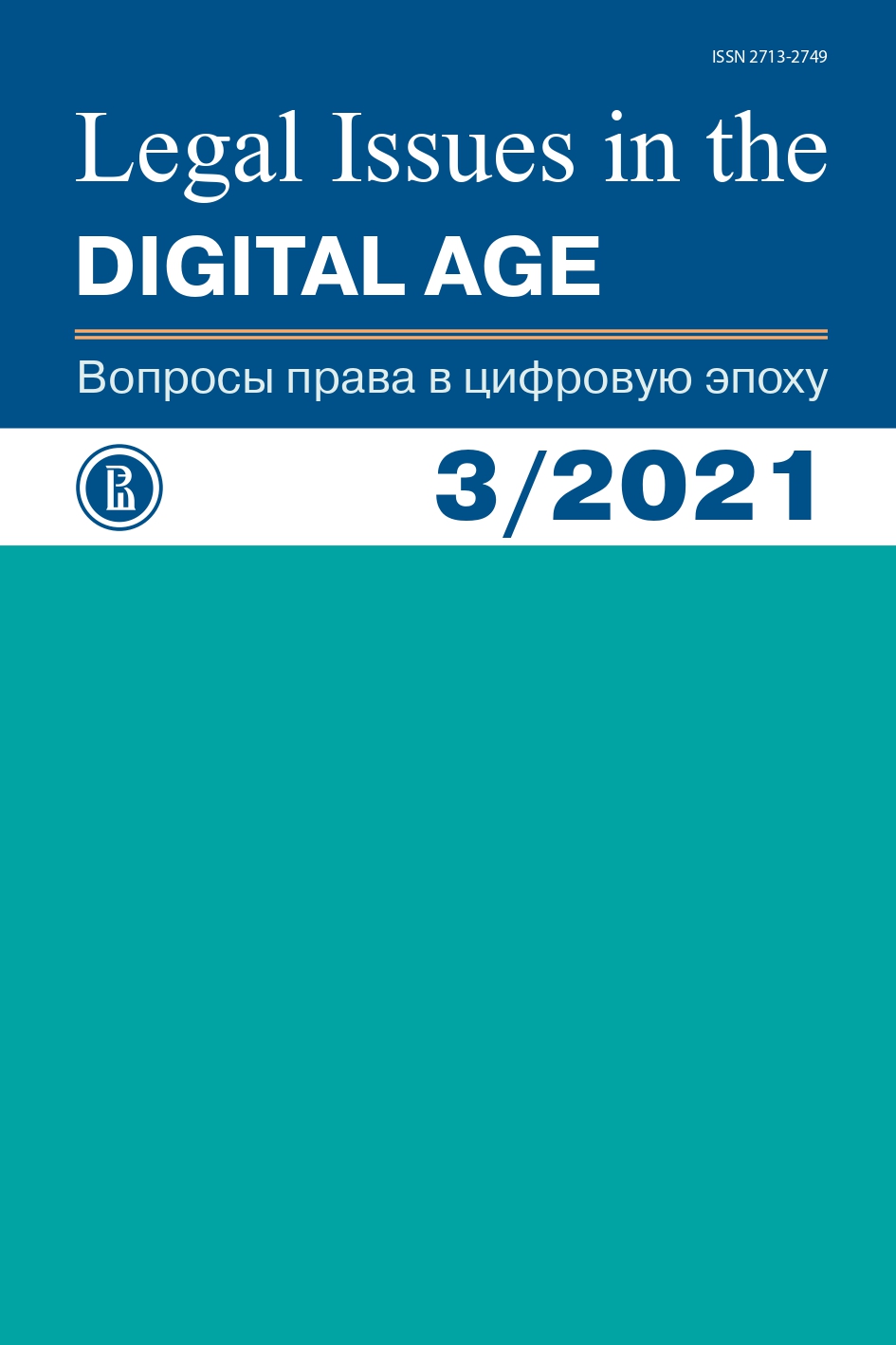International Law Regulation on Access to Health Technologies
Abstract
Over the past decades, the number of system challenges in health protection has rapidly increased, impacting every country, regardless of the economic well-being level. The situation is mainly driven by socio-demographic shocks, geopolitical instability, as well as the lack of a systematic approach to the development of legal regulation of the health sector at the international and national level. Health technologies are fundamental to providing health care, social care, and responding to natural and deliberate emergencies. Access to healthcare technologies is regulated by various branches of international law, which determines the complexity of this process, as well as the need to form special international legal mechanisms to ensure systematic counteraction to threats in the field of health protection, including emergencies. This article presents analysis of the access to health technologies role in rethinking the concept of human security at the international level, as well as in the framework of national security strategies. The author consistently examines the main directions for the development of health technologies transfer regulation, including the protection of the IP rights, the formation of global partnerships in the field of procurement, as well as the harmonization of legal regulation within the framework of regional economic integration initiatives. Special attention in the article is paid to the analysis of the main international regulation for data transfer and
access to scientific knowledge necessary for health technologies transfer, as well as the assessment of national regulation. Based on the conducted analysis, the author formulates proposals for improving the international legal mechanisms regulating access to health technologies.
References
Abashidze A., Malichenko V. (2019) Compulsory licensing mechanism under international and national law. Vestnik RUDN. Yuridicheskiye nauki = Herald of Russian University of People’s Friendship, vol. 23, no. 1, pp. 62–79. (In Russ.).
Bermudez J., Hoen E.T. (2010) The UNITAID patent pool initiative: bringing patents together for the common good. The Open AIDS journal, no. 4, p. 37.
Chien C. (2003) Cheap Drugs at What Price to Innovation: Does the Compulsory Licensing of Pharmaceuticals Hurt Innovation? Berkeley Technology Law Journal, no. 3. pp. 853–907.
Di Masi J.A., Grabowski H.G. (2007) The cost of biopharmaceutical R&D: is biotech different? Managerial and Decision Economics, vol. 28, no. 4–5, pp. 469–479. DOI: 10.1002/mde.1360
Di Masi J.A., Hansen R.W., Grabowski H.G. (2003) The Price of Innovation: New Estimates of Drug Development Costs. Journal of Health Economics, vol. 22, no. 2, pp. 151–185
Digital Health Trends 2021: Innovation, Evidence, Regulation, and Adoption. IQVIA 2021. Available at: https://www.iqvia.com/-/media/iqvia/pdfs/institute-reports/digital-health-trends-2021/iqvia-institute-digital-health-trends-2021.pdf (accessed: 02.09.2021)
Dutfield G. (2003) Intellectual property rights and the life science industries: A twentieth century history. L.: Routledge, 304 p.
Impact of rapid technological change on sustainable development (2019) Report of the Secretary-General. Economic and Social Council. Commission on Science and Technology for Development. E / CN.16 / 2019/2. 17 p.
Khabriev R., Abashidze A., Malichenko V. (2016) The role of pharmaceutical regulation in implementation of the human right to the highest attainable standard of health. Zhurnal zarubezhnogo zakonodatel’stva i sravnitel’nogo pravovedeniya = Journal of Foreign Legislation and Comparative Law, no. 2, pp. 16–22. (In Russ.).
Mukherjee S. (2017) Emerging infectious diseases: Epidemiological perspective. Indian Journal of Dermatology, vol. 5, pp. 459–467.
National Health Security Strategy 2019–2022 (2018) 24 p. Available at: https://www.phe.gov/Preparedness/planning/authority/nhss/Docu-ments/NHSS-Strategy-508.pdf (accessed: 31.08.2021)
Rehabilitation in health systems (2017) Geneva: World Health Organization, p. 35. Available at: https://www.wipo.int/edocs/pubdocs/en/wipo_pub_gc_20.pdf (accessed: 22.02.2021)
Schweitzer S.O., Lu Z.J. (2018) Pharmaceutical economics and policy: perspectives, promises and problems. Oxford: University Press. 352 p.
Wirtz V.J., Hogerzeil H.V. et al. (2017) Essential medicines for universal health coverage. The Lancet, no. 389, pp. 403–476.
Authors who publish with this journal agree to the Licensing, Copyright, Open Access and Repository Policy.










